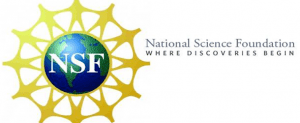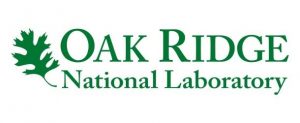Quantum News Briefs August 30: E4 Computer Engineering joins QuEra Quantum Alliance as founding member • Oxford Instruments NanoScience joins Rigetti’s Novera QPU Partner Program • NSF invests $39M in quantum research to expand capacity across US institutions • ORNL: Study seeks to Unite HPC and quantum computing for science

E4 Computer Engineering joins QuEra Quantum Alliance as founding member
E4 Computer Engineering, a leading Italian company in the field of high-tech hardware and software solutions for Artificial Intelligence, High-Performance Computing (HPC), Quantum Computing (QC), Cloud Computing and Data Analytics, announced in August 30 news release that it is among the founding members of the QuEra Quantum Alliance Partner Program.
 The initiative aims to accelerate the development, deployment and use of quantum computers at neutral atoms to address the world’s most demanding computational challenges. Through the QuEra Quantum Alliance, QuEra and E4 Computer Engineering will collaborate with leading technology and solutions companies to deliver unprecedented quantum computing experiences to organizations worldwide.
The initiative aims to accelerate the development, deployment and use of quantum computers at neutral atoms to address the world’s most demanding computational challenges. Through the QuEra Quantum Alliance, QuEra and E4 Computer Engineering will collaborate with leading technology and solutions companies to deliver unprecedented quantum computing experiences to organizations worldwide.
Being part of the QuEra Quantum Alliance will allow E4 privileged access to QuEra’s state-of-the-art technology, benefiting from previews to customize its offerings; to participate in joint activities at industry conferences; and to receive support and engage with QuEra’s team of engineers, software and applications experts to realize the full potential of quantum computing.
QuEra’s neutral atom quantum computers combine system size, coherence and advanced processing modes. These computers offer a promising path to large-scale, fault-tolerant quantum computing.
Oxford Instruments NanoScience joins Rigetti’s Novera QPU Partner Program
Oxford Instruments NanoScience, a leading provider of cryogenic systems, announced August 29 that it has joined the Novera™ QPU Partner Program. This addition strengthens the program’s ecosystem of quantum computing hardware, software, and service providers who build and offer integral components of functional quantum computing systems.
The Novera QPU Partner Program, launched in April 2024, aims to enable high-performing, on-premises quantum computing by creating a collaborative network of industry leaders. Novera QPU customers can now work with Oxford Instruments NanoScience, alongside other partners, to build quantum computers powered by the Novera QPU that satisfy their system requirements and quantum computing research objectives.
Oxford Instruments NanoScience joins as a cryogenics partner. The company’s expertise in cryogenic systems – including the Proteox family of dilution refrigerators – is crucial for maintaining the ultra-low temperatures required for quantum computing operations. Unique to Proteox is a modular design with removable secondary inserts that can be exchanged between compatible systems. This allows pre-tested modules of computing capability to be deployed quickly and shipped globally, with high confidence as QPUs with higher qubit counts and increased fidelities are developed, future proofing the investment.Oxford Instruments NanoScience and Rigetti are longstanding technology partners who have worked together on historic breakthroughs in the development of quantum computing. Earlier this year they jointly announced the successful completion of a three year Innovate UK funded project to build and operate one of the first quantum computers in the UK using a ProteoxLX dilution refrigerator.
NSF invests $39M in quantum research to expand capacity across US institutions

The U.S. National Science Foundation is investing $39 million to help grow quantum research activities at more institutions across America through the NSF Expanding Capacity in Quantum Information Science and Engineering (ExpandQISE) program as per August 29 news release. This investment will fund 23 research projects aiming to break new ground in fields such as quantum computing, sensors and materials.
The funding will directly support research, training and educational activities through partnerships between established QISE programs at research-intensive institutions and up-and-coming programs at institutions seeking to build their quantum research and development infrastructure.
The 23 new grants will support faculty and staff across a broad range of U.S. institutions of higher education, including:
- Seven states participating in the NSF Established Program to Stimulate Competitive Research program, which focuses on areas that have historically received less federal funding for research than others.
- Nineteen colleges or universities classified as emerging research institutions, i.e., institutions with established undergraduate or graduate programs but less than $50 million in federally supported research expenditures annually.
- Seven minority-serving institutions, including four historically Black colleges and universities and three Hispanic-serving institutions.
ORNL: Study seeks to Unite HPC and quantum computing for science
 A study by more than a dozen scientists at the Department of Energy’s Oak Ridge National Laboratory examines potential strategies to integrate quantum computing with the world’s most powerful supercomputing systems in the pursuit of science.
A study by more than a dozen scientists at the Department of Energy’s Oak Ridge National Laboratory examines potential strategies to integrate quantum computing with the world’s most powerful supercomputing systems in the pursuit of science.
The study published in Future Generation Computing Systems takes a big-picture look at the states of ORNL serves as home to the Oak Ridge Leadership Computing Facility, or OLCF, which houses Frontier, the world’s fastest supercomputer, and to the OLCF Quantum Computing User Program, which awards time on privately owned quantum processors around the country to support independent quantum study. The laboratory also leads the DOE’s Quantum Science Center, a national Quantum Information Science Research Center, which combines resources and expertise from national laboratories, universities and industry partners to investigate quantum computing, quantum sensing and quantum materials.
“There are degrees of integration, and we won’t achieve the ideal right away,” said ORNL’s Sarp Oral, who oversees the NCCS Advanced Technologies Section. “To achieve that ideal, we need to identify which algorithms and applications can take advantage of quantum computing. Our job is to provide better ways to conduct science, and quantum computing can be a tool that serves that purpose.”



















